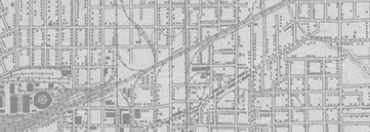


Back
Handwritten letter from Jacqueline Kennedy to John Steinbeck, 02/15/1964
Handwritten letter from Jacqueline Kennedy to John Steinbeck dated February 15, 1964. The letter is two pages, front and back. The body of the letter is written in blue ink on letterhead that reads "Mrs. John F. Kennedy" in black printed text. There is a black border around the edge of the front of each page. In the letter Jacqueline Kennedy asks John Steinbeck to write a book about her husband and describes in some detail how she wants Kennedy’s legacy to take shape and what she does not like about others’ attempts to memorialize him. She mentions that she wants her husband "to pass into legend" and is very emphatic about the fact that she was to be in control of approving any publication related to her husband. Jacqueline Kennedy was accustomed to carefully crafting and controlling the public image of her family, and ultimately, she recognized the importance of trying to control the story of President Kennedy's death and legacy. She concludes the letter by stating that she hopes Steinbeck chooses to take on the project of creating a book and that she does not want her husband's life to be a "lost cause."
Handwritten letter from Jacqueline Kennedy to John Steinbeck, 02/15/1964
02/15/1964
Paper
9 1/4 × 6 1/4 in. (23.5 × 15.9 cm)
The Sixth Floor Museum at Dealey Plaza Collection
2019.104.0001
In the letter, Jacqueline Kennedy mentions s statement by Steinbeck about the "Arthurian cycle." One week after the assassination, in an exclusive Life magazine interview with Teddy White, Jackie famously crafted the Camelot myth, linking her husband's brief presidency with the heroic legend of King Arthur. - Stephanie Allen-Givens, Collections and Exhibits Manager
While Nobel prize-winning author John Steinbeck appreciated President Kennedy's patronage and support of the arts and even attended the President's Inauguration in 1961, he never ended up writing the book Jacqueline Kennedy begged him to write before his death in 1968. - Stephanie Allen-Givens, Collections and Exhibits Manager
Steinbeck scholar Dr. William Ray described John Steinbeck as a "staunch New Deal Deal Democrat with small town Republican roots and a record of wartime advice to his hero Franklin Roosevelt..." Steinbeck supported two-time Democratic presidential nominee Adlai Stevenson over John F. Kennedy in 1960. However, once Kennedy secured the Democratic nomination, Steinbeck actively supported him and attended Kennedy's 1961 inauguration, after being personally invited by the Kennedys. Steinbeck met with President Kennedy on several occasions and was selected by the president to receive the Medal of Freedom, though Kennedy did not live to present the honor himself. (It was presented by President Johnson in September 1964.) On November 22, 1963, Steinbeck and his wife Elaine were in Warsaw on a U.S. cultural mission. Deeply impacted by the assassination, the Steinbecks attended a memorial service at a cathedral in Vienna. Upon his return to the United States, Steinbeck wrote a condolence letter to Mrs. Kennedy. According to Steinbeck biographer Jackson Benson, Mrs. Kennedy thought that Steinbeck was "the writer most suitable" to write President Kennedy's definitive biography. Ultimately, Steinbeck declined because the book idea he had in mind was not an "orthodox biography." Benson writes that Steinbeck never completed his own autobiography for much the same reason. Steinbeck died at the age of 66 on December 20, 1968. -- Stephen Fagin, Curator
Handwritten letter from Jacqueline Kennedy to John Steinbeck, 02/15/1964
Handwritten letter from Jacqueline Kennedy to John Steinbeck dated February 15, 1964. The letter is two pages, front and back. The body of the letter is written in blue ink on letterhead that reads "Mrs. John F. Kennedy" in black printed text. There is a black border around the edge of the front of each page. In the letter Jacqueline Kennedy asks John Steinbeck to write a book about her husband and describes in some detail how she wants Kennedy’s legacy to take shape and what she does not like about others’ attempts to memorialize him. She mentions that she wants her husband "to pass into legend" and is very emphatic about the fact that she was to be in control of approving any publication related to her husband. Jacqueline Kennedy was accustomed to carefully crafting and controlling the public image of her family, and ultimately, she recognized the importance of trying to control the story of President Kennedy's death and legacy. She concludes the letter by stating that she hopes Steinbeck chooses to take on the project of creating a book and that she does not want her husband's life to be a "lost cause."
Handwritten letter from Jacqueline Kennedy to John Steinbeck, 02/15/1964
02/15/1964
Letters
Memoirs
Memories
Letterhead
Author
Kennedy, John F.
Kennedy, Jacqueline
Steinbeck, John
Washington, D.C.
Paper
9 1/4 × 6 1/4 in. (23.5 × 15.9 cm)
The Sixth Floor Museum at Dealey Plaza Collection
2019.104.0001
In the letter, Jacqueline Kennedy mentions s statement by Steinbeck about the "Arthurian cycle." One week after the assassination, in an exclusive Life magazine interview with Teddy White, Jackie famously crafted the Camelot myth, linking her husband's brief presidency with the heroic legend of King Arthur. - Stephanie Allen-Givens, Collections and Exhibits Manager
While Nobel prize-winning author John Steinbeck appreciated President Kennedy's patronage and support of the arts and even attended the President's Inauguration in 1961, he never ended up writing the book Jacqueline Kennedy begged him to write before his death in 1968. - Stephanie Allen-Givens, Collections and Exhibits Manager
Steinbeck scholar Dr. William Ray described John Steinbeck as a "staunch New Deal Deal Democrat with small town Republican roots and a record of wartime advice to his hero Franklin Roosevelt..." Steinbeck supported two-time Democratic presidential nominee Adlai Stevenson over John F. Kennedy in 1960. However, once Kennedy secured the Democratic nomination, Steinbeck actively supported him and attended Kennedy's 1961 inauguration, after being personally invited by the Kennedys. Steinbeck met with President Kennedy on several occasions and was selected by the president to receive the Medal of Freedom, though Kennedy did not live to present the honor himself. (It was presented by President Johnson in September 1964.) On November 22, 1963, Steinbeck and his wife Elaine were in Warsaw on a U.S. cultural mission. Deeply impacted by the assassination, the Steinbecks attended a memorial service at a cathedral in Vienna. Upon his return to the United States, Steinbeck wrote a condolence letter to Mrs. Kennedy. According to Steinbeck biographer Jackson Benson, Mrs. Kennedy thought that Steinbeck was "the writer most suitable" to write President Kennedy's definitive biography. Ultimately, Steinbeck declined because the book idea he had in mind was not an "orthodox biography." Benson writes that Steinbeck never completed his own autobiography for much the same reason. Steinbeck died at the age of 66 on December 20, 1968. -- Stephen Fagin, Curator












